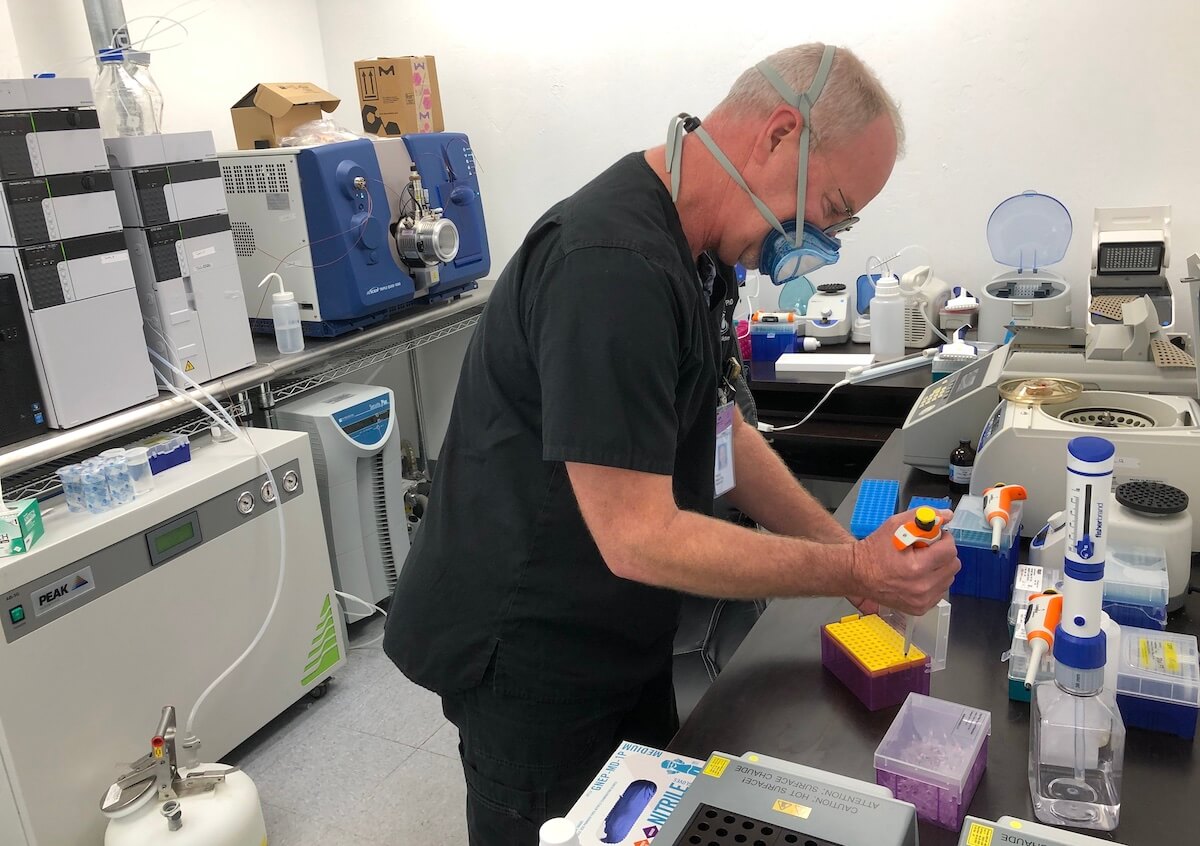
In a surprise move late Friday, Oklahoma Gov. Kevin Stitt vetoed SB 437, an omnibus medical marijuana bill that proposed a slate of new restrictions and included one particular timeline extension that appears to have drawn Stitt’s ire. The governor’s last-minute veto capped off a 2023 regular legislative session saw lawmakers add an array of new laws to the state’s medical weed industry.
SB 437 included changes in the law to help curb medical marijuana use by minors and students in public schools who have reached 18. It also established a requirement for minors to obtain their patient license with the recommendation of two physicians who cannot be located on the same premises, and it directed the Oklahoma Medical Marijuana Authority to establish a list of qualifying conditions for minors and those aged 18 or older who are enrolled in a public school.
The bill also proposed that new business applicants apply first for a “temporary” license with OMMA. The bill also proposed granting OMMA’s executive director the power to limit THC amounts in edible products used by adults and minors.
But it was a provision of the bill extending implementation of a new tiered licensing fee for marijuana grow operations until Nov. 1, 2025, that appeared to spur Stitt’s veto. Some medical marijuana business owners had opposed SB 437, but not for that provision.
In his veto message, Stitt did not name that provision specifically, but he said the bill would “roll back the progress” Oklahoma has made to address “illegal marijuana grow operations.”
“Senate Bill 437 is an omnibus piece of legislation related to Oklahoma’s medical marijuana program,” Stitt wrote. “Contained within the bill are a variety of policy changes to the program that, on their own, would have my full support. Unfortunately, the bill would also roll back the progress we have made as a state to address illegal marijuana grow operations and bad actors within the industry. As illegal grow operations and bad actors continue to be the primary issue facing the industry, it is unwise to repeal changes designed to curb their participation in the market in exchange for improvements to other areas of the state’s program.”
Because 2023 is the first session of the 59th Oklahoma Legislature’s two-year term, lawmakers could vote to override Stitt’s veto when they begin 2024 regular session work in February.
The following article provides a roundup of recent medical marijuana happenings in state government during what has already been a newsy year for the industry.
Drummond praises changes

In a recent press release, Oklahoma Attorney General Gentner Drummond praised the Legislature’s work relating to medical marijuana this session.
In particular, Drummond applauded SB 212 which prohibits foreign ownership of land except for businesses engaging in interstate commerce. He also highlighted SB 475, which allows the Oklahoma Bureau of Narcotics and Dangerous Drugs to suspend the controlled dangerous substances registration of any person — without a hearing — when the agency determines there is an immediate danger to public safety. Other new legislation passed this session prohibits straw ownership of grow operations and allows the OBN to enforce all state medical marijuana laws.
“These measures are a much-needed tool to help law enforcement agencies combat the illegal marijuana operations across our state that are jeopardizing public safety and harming our communities,” Drummond said his release. “Shutting down these illegal operations is my top priority. I am thankful our lawmakers have provided more support to law enforcement officials that, in turn, will help us better protect all Oklahomans.”
Dramatic license fee increase passed

The price to obtain a license for the manufacturing of marijuana in Oklahoma will be going up dramatically following the passage of SB 15X, which raises the fee from $500 to $2,500. The fee applies to owners of marijuana grow facilities and marijuana processing operations.
Legislators have been grappling with handling the state’s expanding medical marijuana industry since its inception. House Majority Floor Leader Jon Echols (R-OKC) said the fee increase aims to help fund Oklahoma Bureau of Narcotics and Dangerous Drugs Control agents in their work to curb illegal grow operations.
“The reason is to fund additional OBNDD agents to deal with mostly gang-affiliated, foreign-owned marijuana operations,” Echols told NonDoc.
He said the cost of obtaining a license to grow or process marijuana in Oklahoma will remain inexpensive relative to other states. In neighboring Colorado, the application fee to set up a cultivation operation or a dispensary is $5,000. Nevada has the same pricing structure. In Oregon, the annual licensing fee is $3,500.
“I think it will move us from the cheapest in the nation to the cheapest in the nation when it comes to getting a marijuana grow license,” Echols said.
The Legislature’s budget agreement also included SB 18X to create the Medical Marijuana Tax Fund and remove prior apportionment language for use of marijuana tax revenues. The measure is the latest part of the broader move to make the Oklahoma Medical Marijuana Authority a stand-alone agency outside of the State Department of Health.
OMMA director Adria Berry confirmed by Senate

After nearly two years at the helm, Adria Berry was confirmed by the State Senate as OMMA’s executive director this session.
An attorney, Berry was appointed to lead OMMA in 2021 by Gov. Kevin Stitt, and she has continued to run the agency through one of its most pivotal periods when it became a stand-alone agency late last year.
When it was formed, the OMMA had been part of the Oklahoma State Department of Health, and its transition to a stand-alone agency required additional confirmation of Berry’s appointment. Under Berry’s watch, OMMA staff have conducted about 3,500 compliance inspections and another 2,200 operational status visits from January to May, according to a press release.
Berry thanked Sen. Adam Pugh (R-OKC) who carried her nomination through the Senate Business and Commerce Committee, among others.
“It’s been the honor of my career to serve alongside not only hard-working colleagues at OMMA, but the rest of our partners across state government,” Berry said in a statement. “I’d like to thank Gov. Stitt, Secretary (Tricia Everest), Sen. Pugh and each legislator who put their faith in me and the OMMA staff to get the job done. We set ambitious goals and do whatever it takes to reach them.”
Business owners accuse OMMA of unfair actions
Growers and processors recently protested at an Oklahoma Medical Marijuana Authority meeting, taking the organization to task for what they say are shutdowns of legitimate businesses because of minor violations.
Dana Herrick, owner of Dana’s Green Depot in OKC, told Fox 25 that those running businesses in the industry should be given more time to correct issues if they arise.
“If some guy has a grow and he’s passed three inspections, and they go in for a fourth inspection and they got a Metrc tag on the ground, while that may not be right, I still don’t think it gives them any reason to close the grow and to stop the production,” Herrick said.
In a statement to the TV station, OMMA officials said the agency was not targeting businesses.
“The narrative that OMMA is shutting down businesses for minor violations is simply untrue and is being used to unnecessarily spark fear among businesses acting within the law,” the statement said.
OMMA communications manager Michael Kimball told NonDoc the agency has done about 80 shutdowns of operations in the state this year through emergency orders of suspension. Business owners who have their license suspended have 10 days to request a hearing in front of an administrative law judge. That judge has the authority to either uphold the suspension or rule in favor of the licensee and reinstate it.
SB 813 includes long-discussed OMMA assurance lab

SB 813 passed both chambers of the Oklahoma Legislature unanimously and was signed by Stitt on May 31. The bill includes a hodgepodge of policy changes, such as allowing the OMMA to purchase vehicles, authorizing the agency to create a petty cash fund, modifying the calculation for indoor and outdoor growing operations, allowing the OMMA to operate a testing assurance laboratory, and allowing secret shoppers to perform certain duties.
The OMMA has been planning to launch a quality-assurance for several years. In 2020, former OMMA interim director Dr. Kelly Williams said the goal of the lab would be to improve evaluation of inconsistencies from labs across the state. For instance, labs might return different analyses of THC potency in a sample. The quality-assurance lab will help standardize those results, she said at the time.
“This is really critical, because every day our patients’ health is on the line when they use medical marijuana, just as it is when they use any other medication,” Williams said in 2020. “Specifically, some of our patient licensees have chronic conditions that make them high risk. Not only that, there are potential contaminants that can affect everyone. I believe the OMMA exists to protect patient safety. Quality laboratory testing is the cornerstone of that process.”
In a press release, Sen. Jessica Garvin (R-Duncan) praised the protections included in several bills that passed during the final week of the regular session. Garvin wrote much of SB 437 which was ultimately vetoed by Stitt.
“These bills will help improve quality-assurance testing, limit access to minor patients, better ensure individuals have an actual medical necessity, and that recommending physicians receive proper education on this treatment,” she said in a statement. “We’re going to create a registry of qualified recommending physicians to ensure patients are seen by Oklahoma doctors, not out-of-state or international physicians just trying to make an easy buck. This will close the loophole that has allowed so many illegal foreign actors to purchase Oklahoma land and shut down more of the black market. In order for this industry to be truly beneficial to patients and businesses, we must strengthen our regulations, and I want to thank everyone who worked with me to ensure a higher quality, more secure industry for all Oklahomans.”
Rep. T.J. Marti (R-Tulsa) echoed Garvin’s comments.
“Establishing compliance testing in medical marijuana businesses is crucial for safeguarding consumer well-being and product safety,” he said. “By further regulating the medical marijuana industry, we can create a transparent and accountable framework that promotes ethical business practices and discourages illegal activities.”
Texas medical marijuana expansion effort collapses
While it hasn’t gained as much attention as other states, Texas has a medical marijuana program of its own that is strictly limited to those with epilepsy, cancer and degenerative neuromuscular diseases like multiple sclerosis and ALS.
A bill in the Texas Legislature that would have expanded those eligible to include Texans living in chronic pain failed to advance from a Senate committee. Texas law limits THC in products sold to 1 percent. The bill that died in committee would have also allowed for higher THC levels in products sold to patients.





















